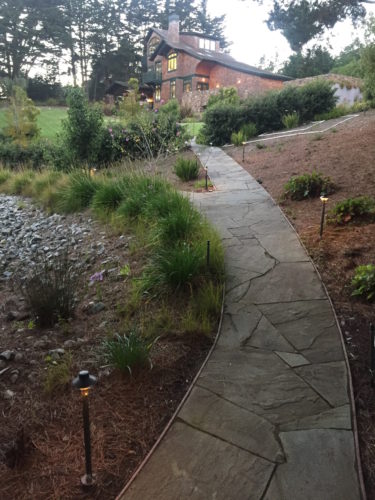
 Some of us are so scared of being outed as human that we go to extreme measures to avoid any indication that we make mistakes. Architects, like me, are especially loath to admit error.
Some of us are so scared of being outed as human that we go to extreme measures to avoid any indication that we make mistakes. Architects, like me, are especially loath to admit error.
You could say architects are conditioned to have ‘ego on steroids’ since the job is to manifest complete confidence in the unbuilt. Hence, we are conditioned to project belief in the unknown. For me, fully flawed, I consider design an act of faith, not hubris. But for most of my peers, design is living out their truth, as revealed by their genius.
No, really, that is the ethic. For some of us. But reality will out us.
Five years ago, I realized I was wrong. Again. At the time, I was designing a place, and I had taken my client through a number of built projects that I had previously designed. He is a very thoughtful human: to him, decisions are not reactions, they are reflections and deductions. After seeing my various projects, he responded with great enthusiasm to one of the homes, which had an interior that he, and subsequently his partner, loved.
We pushed forward with that design. It took a year of back-and-forth, but all was right with the world, and building began. When I first saw the exterior, it seemed magic despite my intimacy with its essence.
But the finishing of the interior had to wait a year, due to the planned absence of the builder. During that time, I visited this remote place and, at my request, I was left alone on the site, walking through the raw, untouched interior. I was in the glow of an exterior that seemed to have a life of its own, beyond my understanding. I spent hours there reviewing my drawings.
The silence was deafening. The isolation and the power of the home’s exterior presence revealed my failure. I realized I had made a series of errors in judgments on the yet-unfinished interior design. Not the layout: the layout was right. But the aesthetics of the interior were deaf to whatever made the exterior magic.
I had designed this home’s interior in fealty to the other project that my clients loved. But in following that aesthetic model, I had lost the magic. The home I silently sat in that day had a life of active grace in terms of shape, site, its spaces, inside and out; and the proposed interior was a creative, crafty homage to the house they had seen and loved. But I had done the completely wrong projection of it. That model interior design was pretty damn nice, and I had simply, professionally, adapted that, wiped my hands after a few months of careful detailing, and walked away.

Until I saw, on the site, in real time, what the reality of those designs would have meant to this house.
A mistake.
My error was obvious in the silence of my confrontation with what was. I had to offer to fix it. I offered, on me, to show my clients, and now friends, what the interior could be — to me, should be. They agreed.
Silence revealed that mistake. Because I think, often, silence offers truth.
The mistake, if left uncorrected, would have been thoroughly defendable, even nice — and, to some, not that much different. But I know it was wrong.
It was wrong the way I am often wrong.
Doing the right thing, ignorant of why I am doing it.
I am wrong daily. You are, too, I would guess. Everyone is.
But the beauty of life is, for me, having what is around us, what we do, revealed to us as not just justifiable or defendable, or in error, but exposed to us as revealing what God has given us. Of course, that is life.

Those gifts are found in the parts of our lives that defy defending, but are exquisitely meaningful.
Like our children.
The exhaustion and frustration of dealing with a baby is so misguided and also impossible to avoid. Now, here, 25 years after we had babies, I can see that, in the silence of our home. In that silence, I can see the exquisite power of infants, which I saw only briefly, intermittently, while I was in the raging midstream of parenthood. I now know that I was wrong not to see it every minute. But I often could not see it when I was parenting screaming or sullen children, until I got away from it a bit. That does not mean that I should not have seen it.
Getting older, I have come to know that God gives us beauty; we do not make it. Not even architects.
Just like in that house. Until I could know the beauty of that place, I could not see it. Being deaf to beauty is just being the screaming or sullen child. But we all have the Great Good Parent who does see the beauty in us, even when we, I, do not.

I have also come to know God can see through my deep ignorance. I could pretend that my seeing beauty was due to a life of making it, or some innate genius, or just my facility at imitating it.
But no, I was frustrated by the screaming child of my incapacities because I was, and often am, unable to see the beauty in every baby — let alone in the buildings I design. Until God reveals it to me. Pretty much every time.

COMMENTS
Leave a Reply












